![Sea Trio, The (Satoh / Yoshihide / Turner): Live in Munich & Bonn [2 CDs] (Confront) Sea Trio, The (Satoh / Yoshihide / Turner): Live in Munich & Bonn [2 CDs] (Confront)](https://www.teuthida.com/productImages/misc4/35009.jpg)
Their second recording after their 2015 trio album Live at Hall Egg Farm on Doubtmusic, the now properly named Sea Trio of Masahiko Satoh on piano, Otomo Yoshihide on electric guitar and Roger Turner on drums & percussion reunite for two impressive 2023 concerts of masterful and often fiery free improvisation, captured in Munich and Bonn, Germany.
Out of Stock
Quantity in Basket: None
Log In to use our Wish List
Shipping Weight: 3.00 units
Sample The Album:
Masahiko Satoh-piano
Otomo Yoshihide-electric guitar
Roger Turner-drumset, percussion
Click an artist name above to see in-stock items for that artist.
UPC: 5904224873554
Label: Confront
Catalog ID: CORE 43
Squidco Product Code: 35009
Format: 2 CDs
Condition: New
Released: 2024
Country: UK
Packaging: Cardboard Gatefold
CD1 recorded at MUG im Einstein Kultur, in in Munich, Germany, on April 27th, 2023, by Oliver Kunzner.
CD2 recorded at Dialograum Kreuzung an St. Helena, in Bonn, Germany, on May 1st, 2023, by Pavel Borodin.
Roger Turner wrote in 2019:
"The Sea Trio met at the legendary Egg Farm just outside Tokyo, and played at the hall there, a purpose-built, wood-walled intimate concert hall with a great acoustic, that had been much appreciated by Derek Bailey and Steve Lacy amongst others. I have been fortunate to have played there each year for the last few years---in duos for example with the pianist Yuji Takahashi, and the dancer Min Tanaka, as well as with Masahiko.Saito-san, who runs the farm and the music, put the trio together. The first concert (21.02.2015) was recorded and released on Doubt Records, Tokyo. We wanted to play again , and got bookings at another legendary spot in Tokyo, Pit-Inn in Shinjuku. The place was full, and the concert was recorded for the Sea album on Relative Pitch Records, the New York label.
Masahiko Satoh played and recorded with nearly all the eminent new york jazz musicians of the late 70's and 80's. he's a great piano player. I had long heard of the legendary Masahiko Satoh, and the quality of his work with the top new york jazz musicians in the 1970's and 80's, and was amazed at some of his seminal recordings like the 1971 "Amalgamation" that featured outrageous electronica and horn sections with traditional Japanese music themes, plus the drumming of Louis Hayes throughout. Very open music, defying all conventions ( including those of western improvisation !!).Satoh-san also wrote avant-garde masterpieces like "Metempsychosis" for the legendary Stomu Yamashita.
I had played before with Yoshihide Otomo. We worked together in Macau for a week with Carlos Zingaro in a dance performance around 1995, and also recorded a cd with a septet of improvisers that included Alexander Frangenheim, Lauren Newton and Zeena Parkins. Occasionally we play duo concerts, and have two cd releases in duo.Otomo has become perhaps the best-known Japanese musician playing in the west, when he first blazed a trail using turntables to fire unique sounds into all kinds of musical situations. Nowadays, in fact for quite a long time, he has been playing electric guitar with his own bands , and others like this trio; and here, it can all fire with a real sense of musical danger."
Artist Biographies
• Show Bio for Masahiko Satoh "Masahiko Satoh (佐藤允彦 Satoh Masahiko, born 6 October 1941) is a Japanese jazz pianist, composer and arranger. Satoh was born in Tokyo on 6 October 1941. His mother was Setsu and his father, who owned small businesses, was Yoshiaki Satoh. The house that his family moved into in 1944 contained a piano; Masahiko started playing it at the age of five. He began playing the piano professionally at the age of 17, "accompanying singers, magicians and strippers at a cabaret in the Ginza district". By 1959 Satoh was playing in Georgie Kawaguchi's band, together with alto saxophonist Sadao Watanabe and tenor saxophonist Akira Miyazawa. Satoh graduated from Keio University. At the age of 26, Satoh moved to the United States to study at the Berklee College of Music. He stayed for two years, during which he read about composing and arranging. He earned money working in a food shop and playing the piano in a hotel. In 1968 he wrote the music for, and conducted, a series of pieces that were combined with dance and performed in New York. After returning to Japan, he recorded Palladium, his first album as leader, and appeared on a Helen Merrill album. In his early career in the late 1960s and early 1970s, Satoh played in a free, percussive style. Satoh played at the 1971 Berlin Jazz Festival as part of a trio; he used a then-unusual ring modulator to alter the sound. Also in the early 1970s, he recorded with Attila Zoller, Karl Berger, and Albert Mangelsdorff. He wrote the psychedelic music for the 1973 anime film Belladonna of Sadness. Satoh has written arrangements for recordings led by, among others, Merrill, Kimiko Itoh, and Nancy Wilson. He also arranged for strings and quartet on Art Farmer's 1983 album Maiden Voyage. In 1990 Satoh formed a large group, named Rantooga, that combined various forms of folk musics from around the world. In the early 1990s he composed music for a choir of 1,000 Buddhist monks. In the early 1990s he was reported as stating that 70% of his time was spent on arranging and composing, and the rest on playing and recording. Satoh has composed for film, television and advertisements. For instance, he made the music of Kanashimi no Belladonna, a film in which the sound is very important ; all the songs of this movie are performed by his wife, Chinatsu Nakayama. Some of his compositions are influenced by the space in the works of composer Toru Takemitsu. Satoh has also composed for traditional Japanese instruments, including the shakuhachi and biwa." ^ Hide Bio for Masahiko Satoh • Show Bio for Otomo Yoshihide Otomo Yoshihide - born in 1959 in Yokohama, Japan. As a teenager, he spent time in Fukushima. Staying independent, he has consistently composed a wide range of music from improvisation to noise music and pop, and his music talent has spread all over the world. He has a successful career as a film score composer and has produced more than 70 movie soundtracks. In recent years, he has produced special type of concerts and musical works in collaboration with other various artists under the name of "ensembles". In addition, one of his priorities is,producing musical workshop projects involving handicapped children. In 2011, after the Great East Japan Earthquake , he started "PROJECT FUKUSHIMA!" along with people in various sectors. He has been active beyond the music scene and this is the reason that he has attracted a great deal of attention. In 2012, he received the Minister of Education Award for Fine Arts in the category of Promotion for "PROJECT FUKUSHIMA!". In 2013, he received various prizes including the Japan Record Award for his accomplishments, such as composing the theme music for the TV drama "Amachan". "I use my real name "Otomo Yoshihide" as my stage name. When you write your Japanese name in English alphabet, many people often write their given names first, then their family names, following in the Western traditional culture. But originally, some Asian countries, including Japan, write their family names first, and then their given names follow after that. In my opinion, there is not only one standard for people's names and we should respect the values each person attaches to their name. Calling someone by his first name is a wonderful custom in Western culture to express familiarity with each other but that custom is not necessary in Japan because nobody has ever called me by my first name. It does not mean that people are unlikely to become close friends with me. It is just that calling me "Otomo" seems easier. There are some places with such customs in the world; where people friendlily call you by your family name. I am definitely not a nationalist but I have a feeling that something is wrong with those people who do not only disregard the tradition I am familiar with, but would rather follow Western standards. For this reason, I would like to continue using the notation "Otomo Yoshihide" as before. When you call me, please call me "Otomo" as before. This will not cause any problems in its use. Until now, many people have written my name "Yoshihide Ōtomo" or "Yoshihide Otomo" but please understand those notations are not my intention. I am sincerely grateful for your consideration." ^ Hide Bio for Otomo Yoshihide • Show Bio for Roger Turner "Roger Turner (born 1946, Whitstable, England) is an English jazz percussionist. He plays the drumset, drums, and various percussion, and was brought up into the jazz and visual art cultures inhabited by his older brothers, playing drums from childhood in informal jazz contexts. Turner studied English literature and contemporary philosophy at Sussex University, playing with Chris Biscoe for the British Council in 1968, a first concert in improvisation. His move to London gave him contact with the first and second generation improvisers and he began to play primarily with Lol Coxhill, Gary Todd, John Russell, Hugh Davies, Steve Beresford, and Phil Minton. In the years immediately after 1974 his work was primarily concentrated on opening the way to a more personal percussion language. This was also a period of intense collaborations that structured many of his future approaches to music-making and saw the formation of two long-lasting acoustic duos with Phil Minton and with John Russell. Recordings of these duos document an extreme attention to timbre and pitch, as well as a constantly shifting speed that typified much of his work at the time. The duo with Minton toured extensively throughout Europe, USA and Canada. In 1979 he established CAW records with John Russell and Anthony Wood, and recorded the solo album The Blur Between focussing on single surface improvisations: a linear and reduced equipment approach he had started using with Carlos Zingaro and others in live performances. In addition to forming Trump music with Gary Todd to promote improvised music in London, he also involved himself in formative activities of the London Musicians Collective during this period. He was awarded Arts Council of Great Britain bursaries for solo percussion in 1980, and in 1983 for investigation into percussion with electronics. Extensive festival and club solo work followed, including the Bracknell Jazz Festival and the Brussels Festival of Percussion. In 1982 the trio The Recedents was formed with Lol Coxhill and Mike Cooper exploring the possibilities of electro-acoustic music, in which Turner initially played drumset and EMS Synthi A as a means of bending the sounds of various metal percussion instruments. This group, still existing, mixes song, jazz, punk/thrash, with acoustic detail in always shifting sonorities, and has worked throughout Europe, Canada and the UK, also recording for the French Nato label. Involvements with experimental rock musics and open-form song included extensive work in duo with Annette Peacock 1983-5, with whom he toured in Europe and Scandinavia. They recorded the album I have no feelings for Ironic. In 1984-5, he was invited for workshop residences at Alan Silva's Institute Art Culture Perception in Paris, where long-term collaborations with Alan began, culminating in The Tradition Trio with Johannes Bauer. This group was central to his explorations of forms of free jazz, an interest that has seen him working with musicians on both sides of the Atlantic (including Elton Dean, Irene Schweizer, Cecil Taylor, Roy Campbell, Henry Grimes, The Wardrobe Trio and Charles Gayle). Since the early 1980s his work has focussed on numerous projects with improvising musicians and groups, touring Europe, Australia, USA and Canada. Perhaps the most important of the later groups would be Konk Pack, formed in 1997, with Tim Hodgkinson and Thomas Lehn, a group whose use of volume and sense of detail continues the exploration of an electro-acoustic dynamic that forms one of his main musical concerns. This group has toured extensively in Europe and USA. He forged working relationships with Japanese musicians over the years: in the 1980s with Toshinori Kondo in the trio with John Russell, but since the mid-1990s in concerts and recordings with guitarist Kazuhisa Uchihashi in Austria, Japan, and U.K, and in the recent (2009) Hana-Bi three-day event in London that included the guitarist and the pianist Chino Shuichi. An active involvement in visual art has always been in dialogue with his music, and an inspiration for it. In the forefront of this is his work with Susan Turcot (the investigation/documentation of music and sound-drawing both in Europe and Canada-including the Being Rich box collection --, and music for her 2008 animation film Bitumen, Blood, and the Carbon Climb. His music for dance/performance includes work with Alexander Frangenheim's Concepts of Doing, Stuttgart ; Carlos Zingaro's Encontros projects in Lisbon and Macau; and most recently in the Josef Nadj production etc.etc. (premiered Vandeouvre, France, 2008) and which is a continuing involvement. In March 2009 he was invited to travel and perform on the Arctic island Svalbard, and was also invited to attend and play in the Comprovise event in Cologne, Germany in June 2009, set up to examine any possible relationship between improvisation and composition. Turner's music-making with international improvisers in ad hoc and group collaborations have since the 1970s to the present day included Toshinori Kondo, Derek Bailey, Fred Frith, Evan Parker, William Parker, Cecil Taylor, Otomo Yoshihide, Shelley Hirsch, Joelle Leandre, Keith Rowe, Ab Baars, Barry Guy, Barre Philips, Henry Grimes, Paul Rutherford, Gunter Christmann, Marilyn Crispell, Irene Schweizer, Frederik Rzewski, and Malcolm Goldstein." ^ Hide Bio for Roger Turner
1/17/2025
Have a better biography or biography source? Please Contact Us so that we can update this biography.
1/17/2025
Have a better biography or biography source? Please Contact Us so that we can update this biography.
1/17/2025
Have a better biography or biography source? Please Contact Us so that we can update this biography.
Track Listing:
CD1
1. Speaking To Stone 28:43
2. About The Unrepeatable 33:25
CD2
1. Where it Lies 24:26
2. Behind the Year 31:23
3. The Last Word Hears You 6:32
Improvised Music
Free Improvisation
Collective & Free Improvsation
European Improvisation, Composition and Experimental Forms
Asian Improvisation & Jazz
Yoshihide, Otomo
Trio Recordings
Staff Picks & Recommended Items
Recent Releases and Best Sellers
Top Sellers for 2024 by Customer Sales
Search for other titles on the label:
Confront.


![Sea Trio, The (Satoh / Yoshihide / Turner): Live in Munich & Bonn [2 CDs] (Confront) Sea Trio, The (Satoh / Yoshihide / Turner): Live in Munich & Bonn [2 CDs] (Confront)](https://www.teuthida.com/productImages/full/35009.Full.jpg)



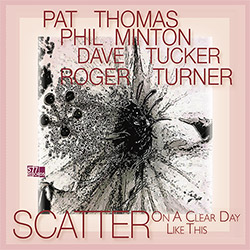
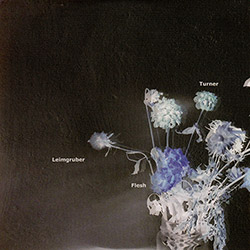
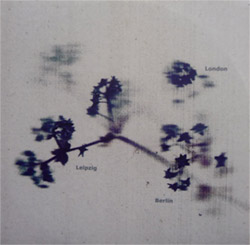
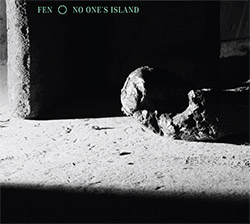
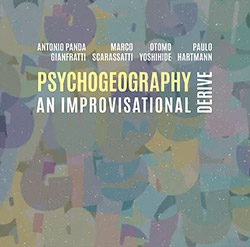

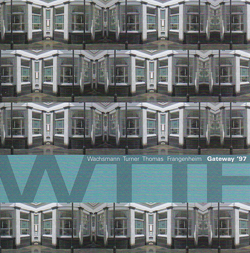
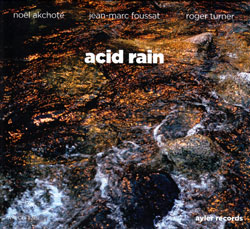
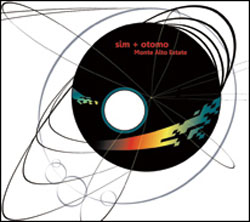
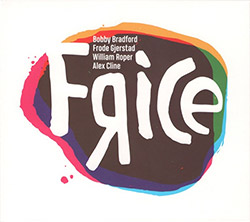



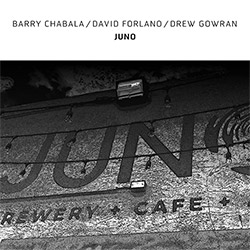
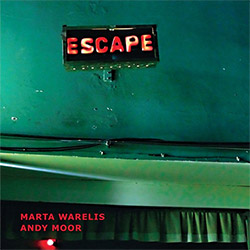
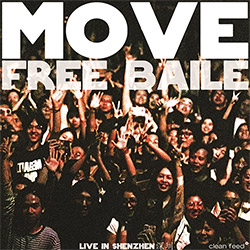

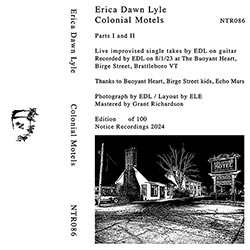
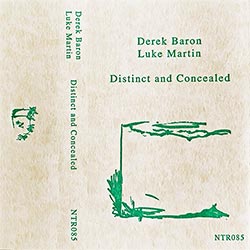
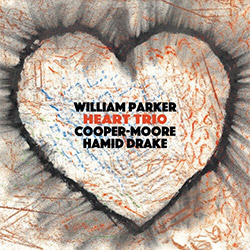




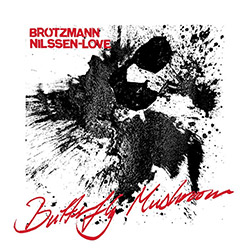
![Brotzmann, Peter / Paal Nilssen-Love: Butterfly Mushroom [VINYL]](https://www.teuthida.com/productImages/misc4/35541.jpg)
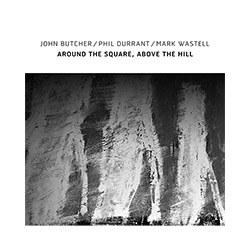
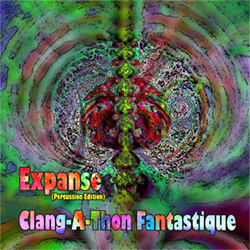
![Allen, Clifford: Singularity Codex: Matthew Shipp On Rogueart [BOOK]](https://www.teuthida.com/productImages/misc4/33454.jpg)


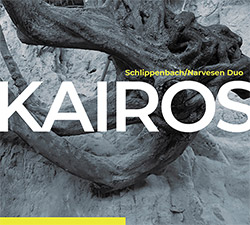

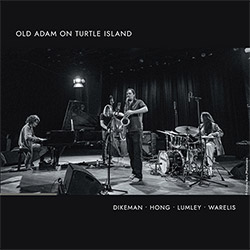
![Sun Ra: Lanquidity (DELUXE EDITION) [VINYL]](https://www.teuthida.com/productImages/misc4/35234.jpg)
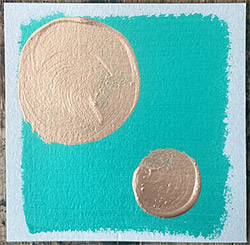
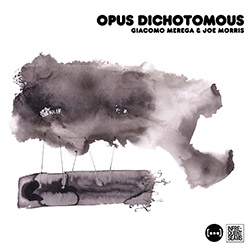
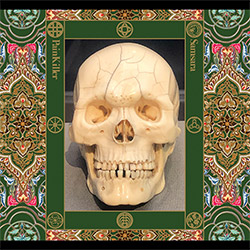
![Sun & Rain (Morgan / Laplante / Smiley / Nazary): Waterfall [VINYL]](https://www.teuthida.com/productImages/misc4/35604.jpg)
![Centazzo, Andrea: Ictus@45 - Out Off Nights [4 CD BOX SET]](https://www.teuthida.com/productImages/misc4/35611.jpg)
![Kaucic, Zlatko (Kaucic / Amado / Dorner / Grom / Guy / Fernandez / Snekkestad): INKLINGS [4 CD BOX SET]](https://www.teuthida.com/productImages/misc4/35614.jpg)
![Fernandez, Agusti feat. Barry Guy, Don Malfon, John Butcher, Jordina Milla, Liudas Mockunas, Lucia Martinez, Torben Snekkestad, Zlatko Kaucic: Agusti Fernandez @70 - Aesthetic Of Prisms. [7 CDs]](https://www.teuthida.com/productImages/misc4/35617.jpg)
![Sarian, Michael / Matthew Putman / Ledian Mola / Federico Ughi: The Sea, The Space, and Egypt, Vol. 1 [VINYL]](https://www.teuthida.com/productImages/misc4/35463.jpg)
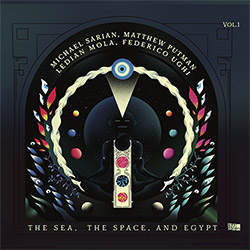
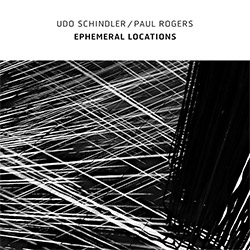
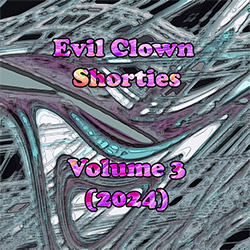



![Berne, Tim (w/ Tom Rainey / Gregg Belisle-Chi): Yikes Too [2 CDs]](https://www.teuthida.com/productImages/misc4/35601.jpg)
![Berne, Tim (w/ Rainey / Belisle-Chi): Yikes [VINYL]](https://www.teuthida.com/productImages/misc4/35602.jpg)

![Butcher / Davies / Sanders / Thomas: Unlockings [VINYL]](https://www.teuthida.com/productImages/misc4/35002.jpg)
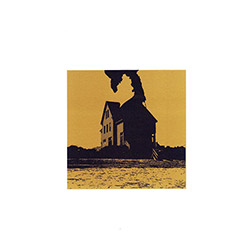
![Brulez les meubles (+ Ingrid Laubrock / Marianne Trudel / Jonathan Huard): FOLIO #5 [VINYL]](https://www.teuthida.com/productImages/misc4/35629.jpg)
![Butcher / Davies / Sanders / Thomas: Lower Marsh [VINYL]](https://www.teuthida.com/productImages/misc4/35003.jpg)
![Beins, Burkhard (w/ Dorner / Elieh / Ermke / Neumann / Renkel / Tuerlinckx / Zapparoli): Eight Duos [3 LPs]](https://www.teuthida.com/productImages/misc4/35473.jpg)

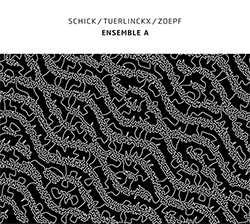
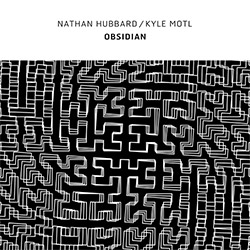
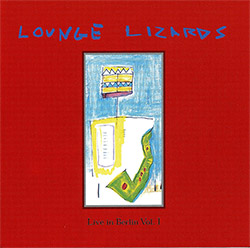
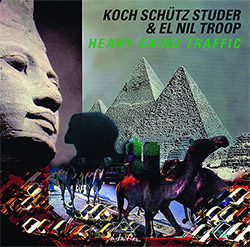

![Taylor, Cecil: The Classic Albums - 8 Remastered LPs [4 CD BOX SET]](https://www.teuthida.com/productImages/misc4/35519.jpg)
![Bang / Duch / Honore / Toop / Wastell: Wunderkammer [VINYL]](https://www.teuthida.com/productImages/misc4/35536.jpg)
![Fagaschinski, Kai / Yan Jun : Graveyard Processions [VINYL w/ DOWNLOAD]](https://www.teuthida.com/productImages/misc4/35474.jpg)
![Brant, Cody / Carl Kruger: Smoke Detail [CASSETTE w/ DOWNLOAD]](https://www.teuthida.com/productImages/misc4/35551.jpg)
![Weirs and Magic Tuber Stringband : The Crozet Tunnel [CASSETTE + DOWNLOAD]](https://www.teuthida.com/productImages/misc4/35570.jpg)
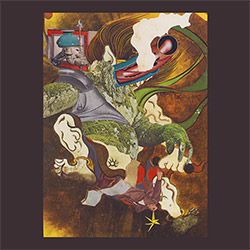
![Abcess Grenk: Erguss Von Licht [CASSETTE w/ DOWNLOAD]](https://www.teuthida.com/productImages/misc4/35560.jpg)

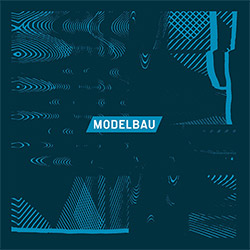
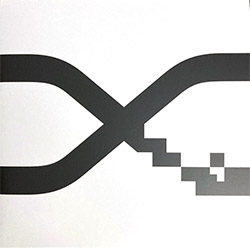
![Alva Noto: Xerrox Vol. 5 [VINYL 2 LPs]](https://www.teuthida.com/productImages/misc4/35359.jpg)
![Weston, Matt: Communism Has Appeared On The Scene [VINYL 2 LPs]](https://www.teuthida.com/productImages/misc4/35546.jpg)

![Jeck, Philip: rpm [2 CDs]](https://www.teuthida.com/productImages/misc4/35455.jpg)






![DNS: Taking Big Bites Of The Khandas Three Cafes Deep [2 CDs]](https://www.teuthida.com/productImages/misc4/35334.jpg)




![Cleaver, Gerald: The Process [VINYL]](https://www.teuthida.com/productImages/misc4/34966.jpg)




![Lonsdale, Eden: Dawnings [2 CDs]](https://www.teuthida.com/productImages/misc4/35480.jpg)







![Sanna, Claudio: Compositori Sardi Contemporanei II [2 CDs]](https://www.teuthida.com/productImages/misc4/35317.jpg)







![Zurria, Manuel: Fame di Vento [3 CDs]](https://www.teuthida.com/productImages/misc4/35167.jpg)

![Granberg, Magnus / Nattens Inbrott / Skogen: Holde Traume, Kehret Wieder! [2 CDs]](https://www.teuthida.com/productImages/misc4/35038.jpg)
![Frey, Jurg: Outermost Melodie [2 CDs]](https://www.teuthida.com/productImages/misc4/35039.jpg)
![Pavone, Jessica: Reverse Bloom [VINYL]](https://www.teuthida.com/productImages/misc4/34895.jpg)




![Modney (Modney / Wooley / Gentile / Roberts / Pluta / Symthe / ...): Ascending Primes [2 CDs]](https://www.teuthida.com/productImages/misc4/34852.jpg)






![Elephant9 : Mythical River [VINYL]](https://www.teuthida.com/productImages/misc4/34624.jpg)



![Elephant9 with Terje Rypdal: Catching Fire [VINYL 2 LPs]](https://www.teuthida.com/productImages/misc4/35355.jpg)
![Deerlady (Obomsawin, Mali / Magdalena Abrego): Greatest Hits [VINYL]](https://www.teuthida.com/productImages/misc4/34876.jpg)




![Haino, Keiji: Black Blues [2 CDs]](https://www.teuthida.com/productImages/misc4/35109.jpg)



![Staiano, Moe: Away Towards the Light [VINYL + DOWNLOAD]](https://www.teuthida.com/productImages/misc4/35037.jpg)



![Caveira (Gomes / Sousa / Abras / Ferrandini): Ficar Vivo [VINYL]](https://www.teuthida.com/productImages/misc4/34643.jpg)
![Gregg, J. J. / David Van Auken: Lunar Prairie [CD w/ DOWNLOAD]](https://www.teuthida.com/productImages/misc4/34611.jpg)

![Coultrain: Mundus [VINYL]](https://www.teuthida.com/productImages/misc4/32439.jpg)
![Mattin: Songbook #6 [VINYL]](https://www.teuthida.com/productImages/misc4/27317.jpg)
![Punkappella: Wake Up [7-inch VINYL]](https://www.teuthida.com/productImages/misc4/17519.jpg)
![Residents, The: WARNING: UNiNC.: Live And Experimental Recordings 1971-1972 [VINYL 2 LPs]](https://www.teuthida.com/productImages/misc4/31521.jpg)
![Coley, Byron: Dating Tips for Touring Bands [VINYL]](https://www.teuthida.com/productImages/misc4/17906.jpg)

![Lost Kisses: My Life is Sad & Funny [DVD]](https://www.teuthida.com/productImages/misc4/lostKissesDVD.jpg)